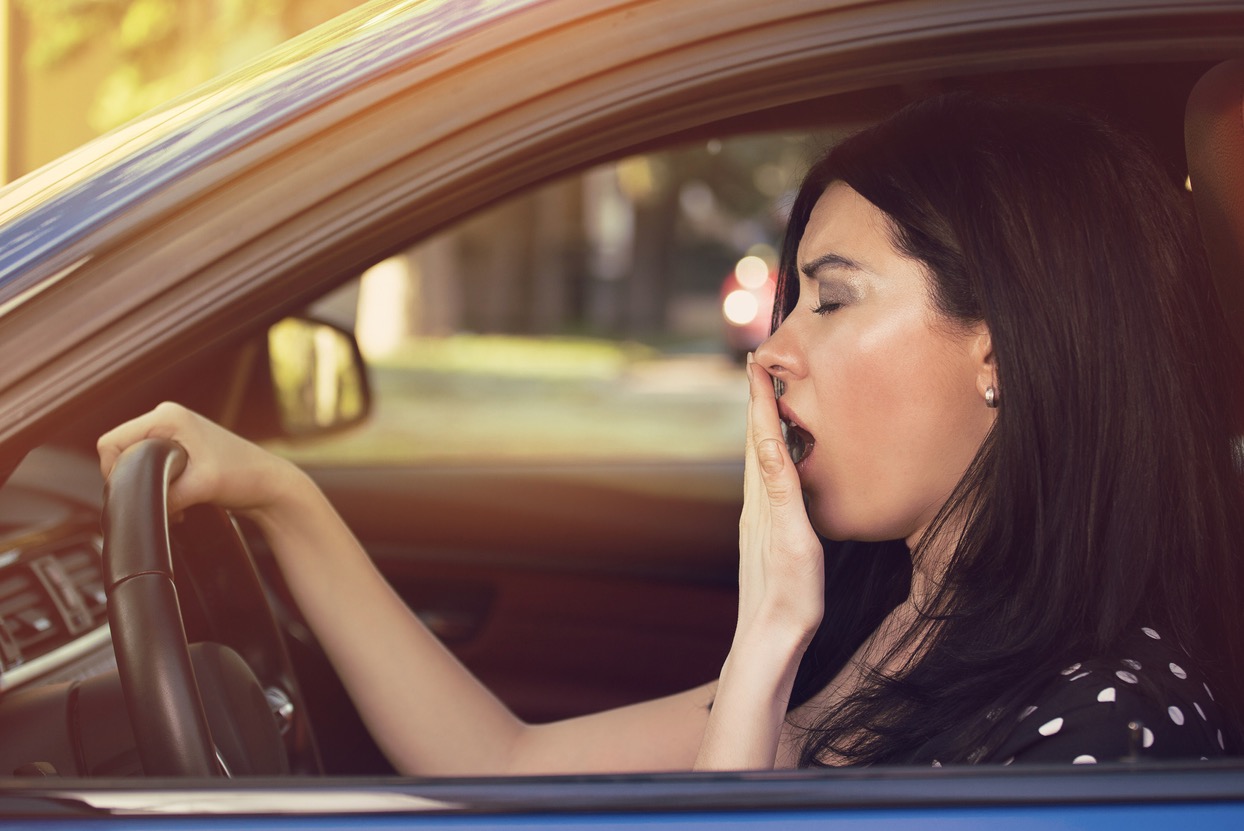Have you ever nodded off while at the wheel of a car or a truck? It doesn’t need to be a full blown nap; it could be a ‘microsleep.’ Even a second of inattention could mean you driving several dozen yards at an average speed of 55 mph and that might just be enough to cause an accident.
It’s easy to point out what to do to avoid causing an accident through drowsy driving, also called more plainly fatigue or tiredness. Everyone needs around 7 to 8 full hours of sleep a day. If you intend driving and feel tired, it’s best to have a sleep first or allow someone else to share the driving. If you are on a long drive, especially if you are going to drive at night when you are more likely to feel tired anyway, the best advice is to pull over now and again and have a real nap where it is safe to do so. Even a half hour nap and a coffee can help save your life and someone else’s. Note that it’s the extra sleep that helps the most – not the coffee, the effect of which may only last temporarily and may not prevent microsleeps.
Hit by a tired driver
Even if you are a careful and conscientious driver, you can still be hit by a tired Tennessee driver. What’s the chance of this actually happening? The statistics are not very exact, as accidents caused by drowsy drivers, like those caused by distracted drivers, are hard to identify. According to the National Highway Transport Safety Administration (NHTSA), the most likely chances of tired driver accidents are those that:
- happen between 4 pm and 6 pm and overnight, when the body’s own circadian rhythm tends to wind down;
- are exacerbated by certain types of medication, drug taking or alcohol, even in amounts that may be considered legal;
- occur when the driver is alone;
- occur when on a long journey;
- happen when the driver is young and over active, a business person on an extended trip away from home or a long distance truck driver.
The NHTSA conservatively estimates that over 800 people die every year across the nation from drowsy driver accidents, fewer by far compared to the number caused by distracted drivers, but still significant. The same imprecise statistics suggest that there were over 40,000 people injured as a result of drowsy driving in a single year (2015).
The dangers of being hit by a tired driver may only mean a minor bump or body scratch to your car when a tired driver loses attention for a short period in slow moving traffic or in somewhere congested, like a parking lot. A driver who falls asleep while driving fast on a straight stretch of road could be potentially far worse. Typically, if the driver falls asleep, the worst danger is when they are approaching you on a one lane highway. If they don’t veer off the road on their side, they could cross the center line and hit you head on. Head on crashes that happen at speed are potentially some of the worst types of accidents. They can cause crippling injuries to all parties involved.
Driving while tired could be considered negligence
Of course, you have the right to claim compensation after such an accident if you, or anyone else in your vehicle, was injured. A tired driver has a responsibility to drive safely. If he or she allows themselves to drive while tired, this could be construed as negligence. It would be necessary for you, or your attorney, to prove that the accident was caused by the other driver’s negligent driving. This is not as easy as it might be if the driver was found to be drunk, or speeding at the time. However, there may be evidence available that can reveal the driver’s erratic behavior immediately beforehand.
If you have been injured by a drowsy driver, or you believe that your injuries were not your fault and were caused by negligence, you have the right to claim compensation from that driver’s insurance carrier. This is never a straightforward process and it is best to contact an experienced car accident attorney to arrange a consultation as soon as you are physically able to do so after such an accident. In Nashville, do not hesitate to contact the Keith Williams Law Group at (615) 444-2900.


Leave A Comment